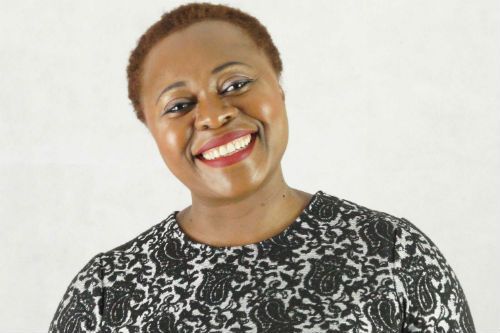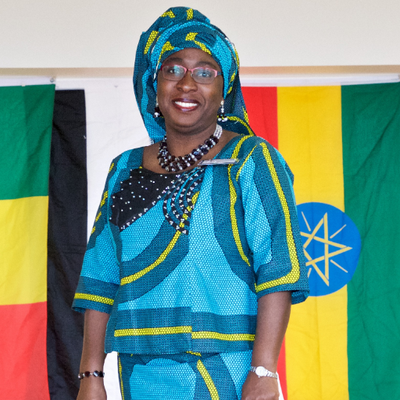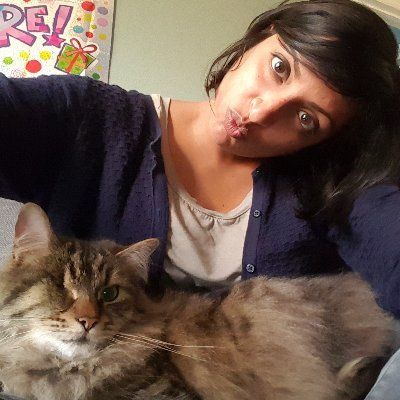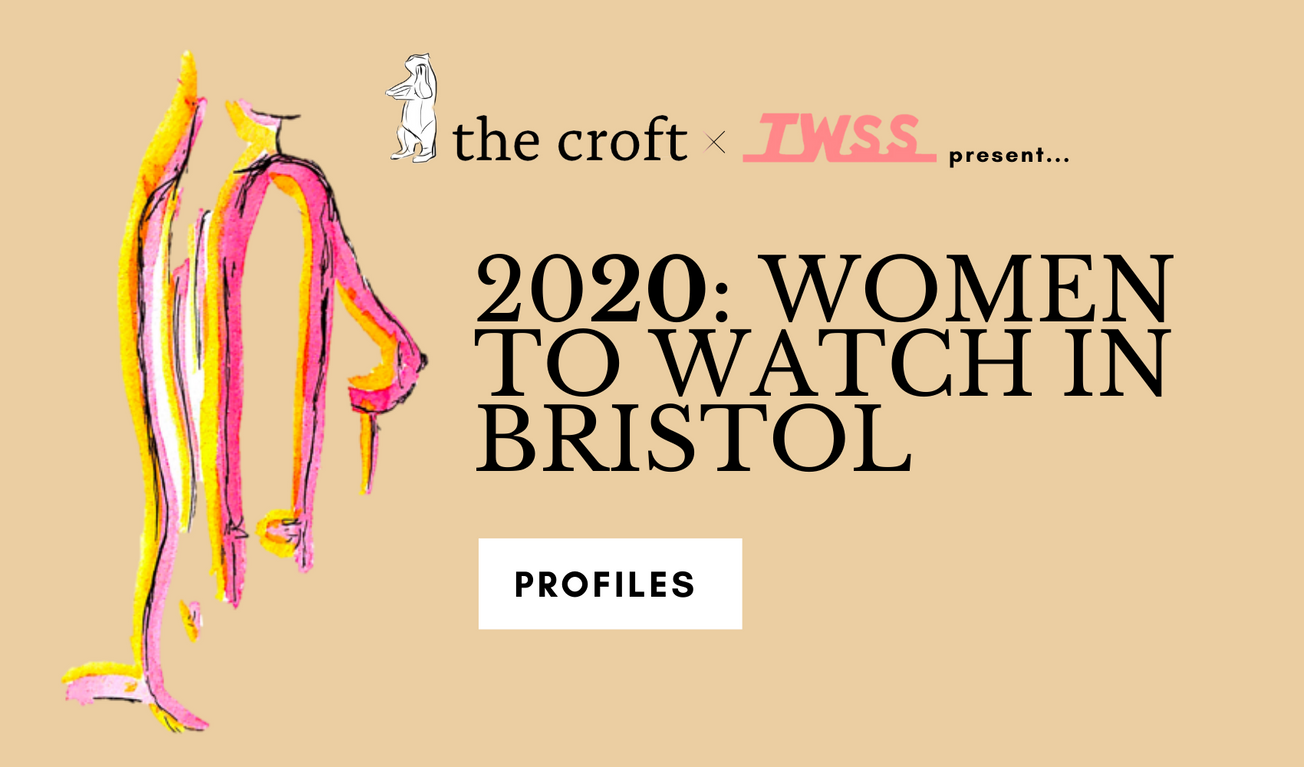By Daisy Farrow, Emma Holding, and Hendrike Rahtz, The Croft Editorial Team
The Croft X TWSS // Find out about five women's work in Academia that is shaping the future of our city.
Our collaboration with That’s What She Said saw us wanting to do something to honour and praise the influential women of Bristol. After a lot of thought, we eventually decided to choose 20 women who have had an impact on the city from across four fields: STEM, Academia, Politics, and Culture. These 20 were chosen for their admirable work, their ties to the city we all love, and to inspire the rest of us. As such, we thought it was only fitting to give you, the students of Bristol, a chance to meet them and get to know them.
Dr Olivette Otele
Based in Bristol’s very own History department and Centre for Black Humanities, Olivette Otele is the UK’s first Black female history professor. She got her PhD in History from Universite La Sorbonne, France, specialising in European colonial and post-colonial history. In January 2020, she began a new role at Bristol University, where she is currently conducting important research investigating both the University and the wider city’s links with the transatlantic slave trade.

Olivette has taught the history of Bristol at other universities, and hopes now in her research to uncover new elements and new archival material of Bristol’s past. In an interview with Epigram, Olivette said that she intends to share the findings from her research with various people and groups in Bristol, and to use it to celebrate the role of people of African descent and in the history of our ‘vibrant city’. The findings from her research will certainly resonate with all citizens of Bristol, and much further beyond.
She is also Vice President of the Royal Historical Society, an executive board member for the British Society for Eighteenth-Century Studies, and a board member of Historians Against Slavery, among other important roles. One of her findings from her role at the Royal Historical Society was that at undergraduate level, History is attracting some people from minority ethnic backgrounds, but that these numbers are lower for later studies. Not because of loss of interest, but from various other reasons - from racism, to economic questions. She says that they are 'finding ways to bring in more people interested in these kinds of histories and people from minority ethnic backgrounds, black people in particular, and black women would be nice.’
Dr Foluke Adebisi
Dr Foluke Adebisi joined Bristol University Law School in 2013. In this position, she explores the links between power structures, knowledge production, knowledge transmission, and inequalities in (global) society. Her project to understand the links of inequities and diversity to the structuring of legal education is vital for tracing better connections between race and the legacy of the law. She says in her statement on Bristol’s website, “Teaching should change the world. I teach the world I want to see”.

She shares her important message not just through lecturing in law, but her Twitter @folukeifejola spreads both joy and knowledge much further beyond Bristol’s reach. Her activism within Bristol extends beyond her powers in teaching: she is founder and director of Forever Africa Conference and Events (FACE), the first Pan-African Conference at Bristol, which brings together University staff and students for inter-disciplinary discussions on topics surrounding Africa.
We asked her how Bristol has shaped her and the work she does:
“Bristol is a mix of two rather paradoxical parts. On the one hand, Bristol has quite blatant and uncritical commemoration of people who made their wealth and names from brutally imposing suffering and forced servitude on others. On the other hand, Bristol has a diverse, vibrant and activist core running through the city and its people. Both these parts of Bristol have shaped my work since I moved to the city. I learn from the lessons the past has for the present and for the future. I also draw strength from the people of Bristol who have a vision for a kinder tomorrow.”
Dr Natasha Mulvihill
Lecturing in Criminology at Bristol University since 2017, Dr Mulvihill’s work into sex-work policy and gender-based violence is as important now as it was when she first started her research at the Centre for Gender and Violence Research back in 2014. Her primary area of research sees her examining prostitution and sex-work policy through the criminal justice system, and the harm and danger these institutions - which exist to protect them - can cause. She even spent a period of time teaching literacy and creative writing to women leaving the field of sex-work, a volunteer programme which inspired her to go on to focus on gender, sex, and social justice.

Her ties to Bristol began when she completed an undergraduate degree in Politics, before going on to earn her PGCE, a Masters in Criminology and Social Policy, and finally a PhD in the same area of research before finally returning to Bristol in 2017 where she began lecturing in Criminology. When asked about her ties to Bristol, and how the city shaped herself and the work she does, she said:
“It was more than fifteen years ago that I started volunteer teaching creative writing at safe house in Bristol for women exiting street sex work. At lunchtimes in my then day job in a bank, I would look wistfully at the webpages of the 'Centre for Gender and Violence Research' at the University of Bristol and wonder how I could be part of that work. I joined the Centre as a PhD student in 2010 and now, as a researcher, have just worked on the 2019 Home Office-commissioned report into the nature and prevalence of prostitution and sex work in England and Wales. For me, the Centre and the University reflect the character of the city: diverse, creative, thoughtful and committed to social change.”
Dr Mulvihill’s work is so important it has even led her to being commissioned by the UK Home Office in 2019 into the existence of sex work and prostitution in England and Wales. Her research continues to shine a light on the conditions these women work in, and the need to ensure that all sex-work is carried out with consent, without constraint or exploitation, and with the security of ensuring their mental and physical wellbeing is protected.
Dr Madhu Krishnan
Dr Madhu Krishnan is Professor of African, World and Comparative Literature at University of Bristol, and has been working here since 2013 as a lecturer in Postcolonial writing. She is working on a project funded by the European Research Committee which seeks to explore the ways in which literary activism operates with respect to the more expansive notions of the social, political and literary on the African continent.

Her other work at Bristol University includes being director of the (now-defunct) Centre for Colonial and Postcolonial Studies and on the management committee of the Centre for Black Humanities. She also engages with the wider Bristol community, being on the board of the Bristol Poetry Institute, Bristol Cultural Development Partnership, a trustee for Literature Works, and a member of the Engagement Board for the Temple Quarter project. She does an incredible amount of work both in and for our city, so we asked her how Bristol has shaped her experience in academia:
“I was appointed to the University of Bristol in 2013, moving to the city from Newcastle to take up my post. At the time of my appointment, I was the first BAME person to get hired in my department and one of only two women of colour in my School. In a lot of ways, I have been really lucky to have always been supported in Bristol in trying to do new things and to expand some of what we do in terms of teaching, research and engagement. My own work has been deeply shaped by working here. For instance, over the last several years I’ve shifted from primarily desk and archival research to practice as research. This has been partly because of the influence of colleagues in the Faculty of Arts and elsewhere (such as the Productive Margins project), who have done really innovative and interesting work on coproduction, co-labour and practice-based methods.
I definitely feel like working at Bristol has shifted the way I think about my work away from being ‘about’ things to being ‘with’ things. I’ve also been able to get more involved with the city, as a board member of the Bristol Cultural Development Partnership. This led to working on the city’s Cultural Strategy, and has been an amazing way to feel like an active part of civic life beyond the University, especially around literature and literary development.
The city of Bristol itself is an amazing place to live. I feel really fortunate to live in Easton, which has a great balance between the conveniences and excitement of urban life and the comfort of somewhere with a real community feel. It’s also an area that is super engaged, and I’ve felt more and more empowered to get active in politics and trade unionism from being here (I also started riding a bicycle and stopped eating meat, which is probably a little cliché).”
Dr Katie Bales
Dr Katie Bales is a lecturer in Law at the University of Bristol, specialising in the welfare state, forced migration and labour law. Her notable work consists of two external research projects the Equality and Human Rights Commision, as well as the Scottish Human Rights Commission. The projects focus on the State’s compliance with welfare reform and child immigration detention. Dr Bales’ newest research will focus on the “political economy of state organised forms of work including prison labour, workfare, community payback and labour within immigration detention.”
As well as her role within the University, Dr Bales is also co-editor of the Futures of Work blog from Bristol University Press, which aims to offer “radical and critical thinking on ongoing and emerging issues associated with work and employment.” The blog features articles based on topics such as ‘The Business of Women Empowerment’ and ‘Syrian Garment Workers in Turkey: Modern Slavery?’

She is also a trustee for the Bristol City of Sanctuary charity which helps refugees and asylum seekers by working with local organisations to provide various services.
Self-labelled an activist on Twitter, Dr Bales uses her platform to advertise the work done by Bristol students on behalf of the Bristol City of Sanctuary charity, for example, among other things; she was also heavily involved in the UCU strikes, related to making the university workplace a better environment for everyone.
Look out for the next article in the series online at Thats What She Said Magazine tomorrow.
Featured: Epigram / Tom Taylor
Find The Croft Magazine inside every copy of Epigram Newspaper









